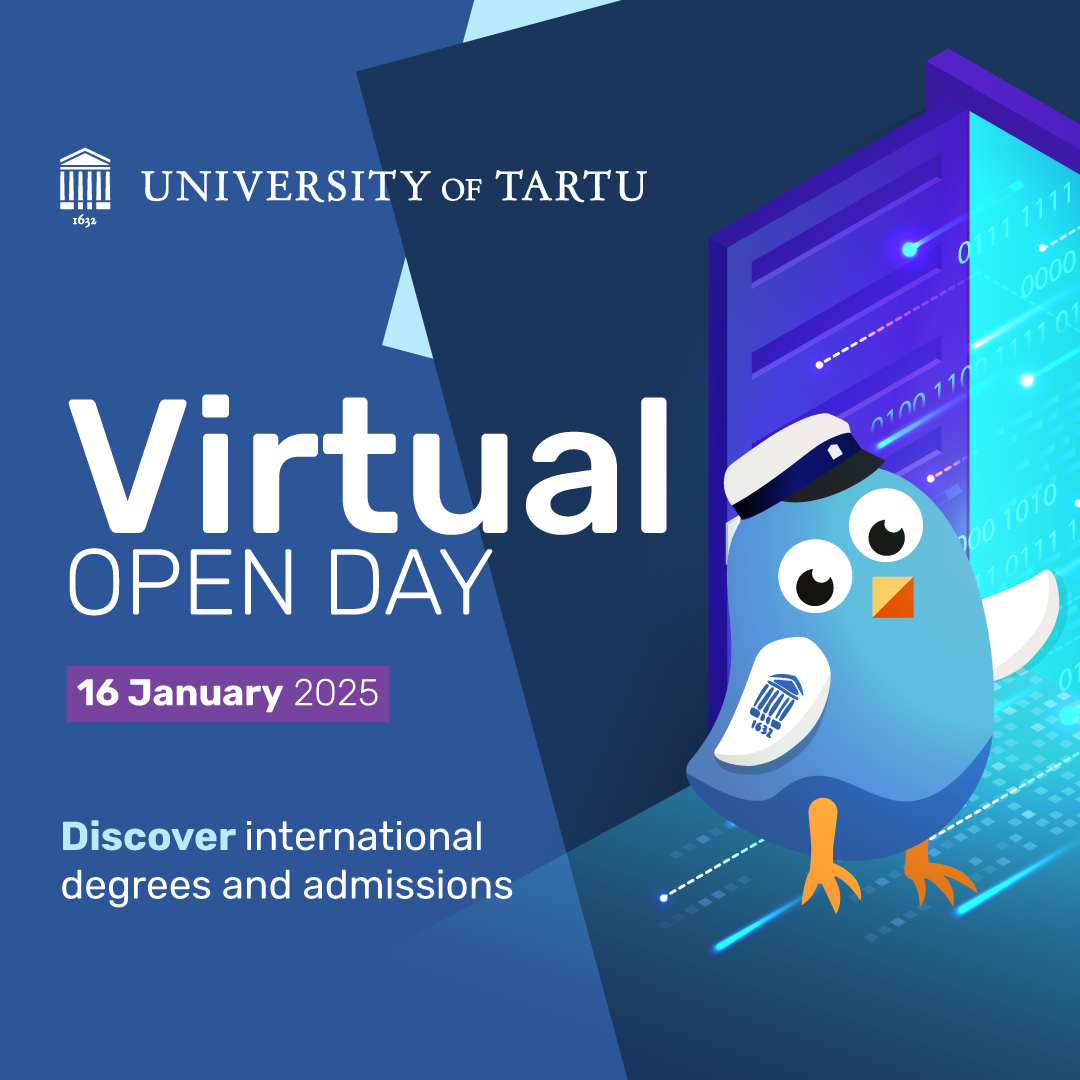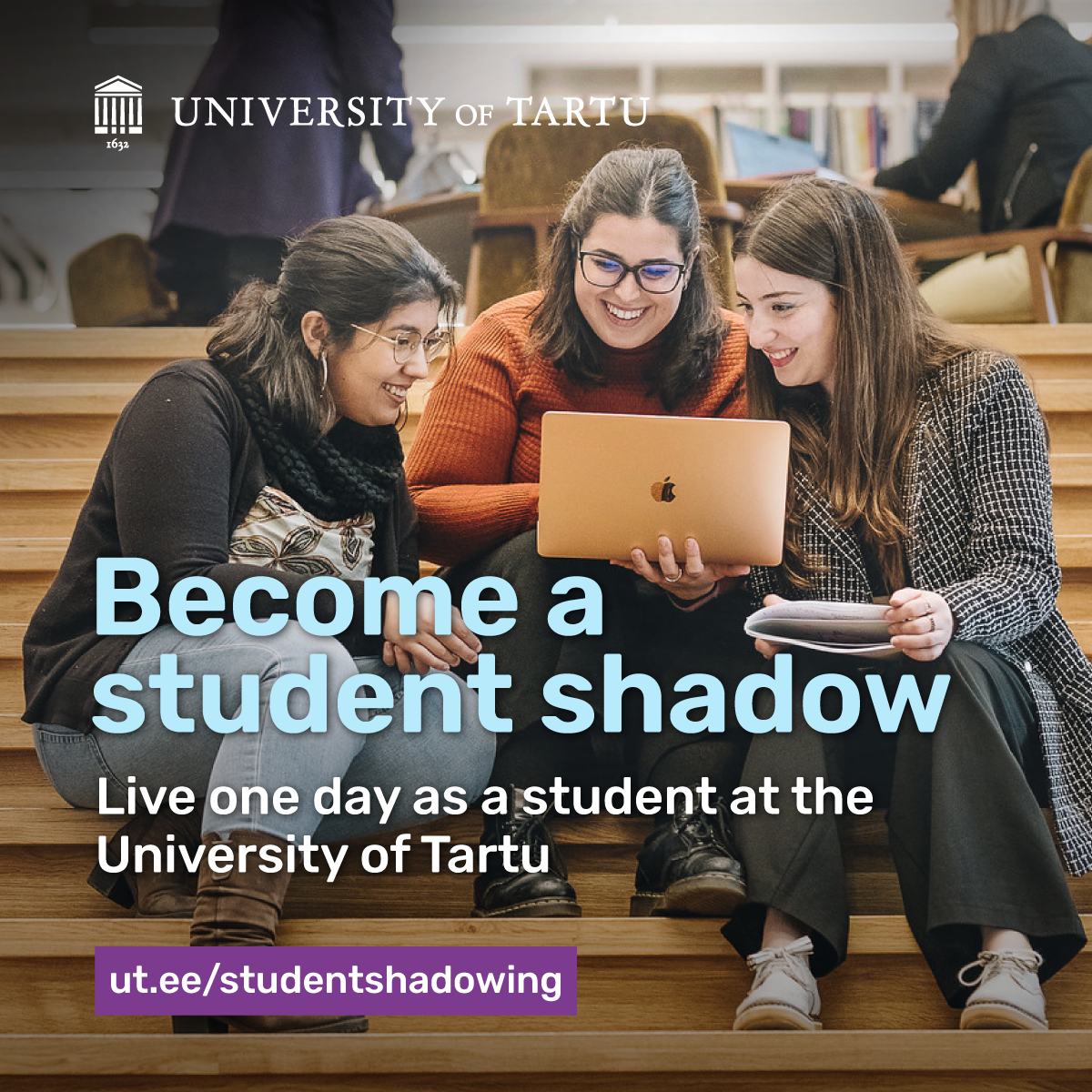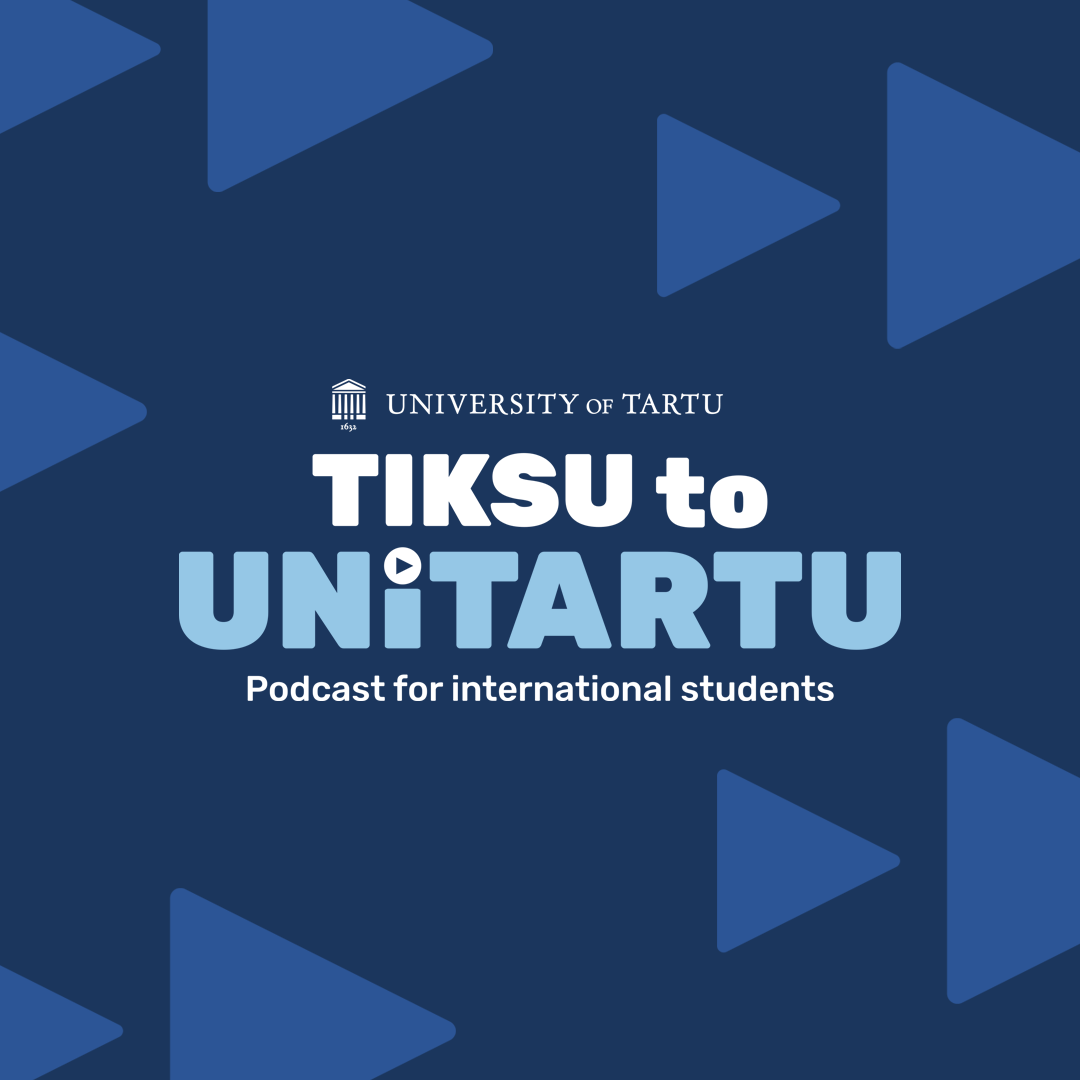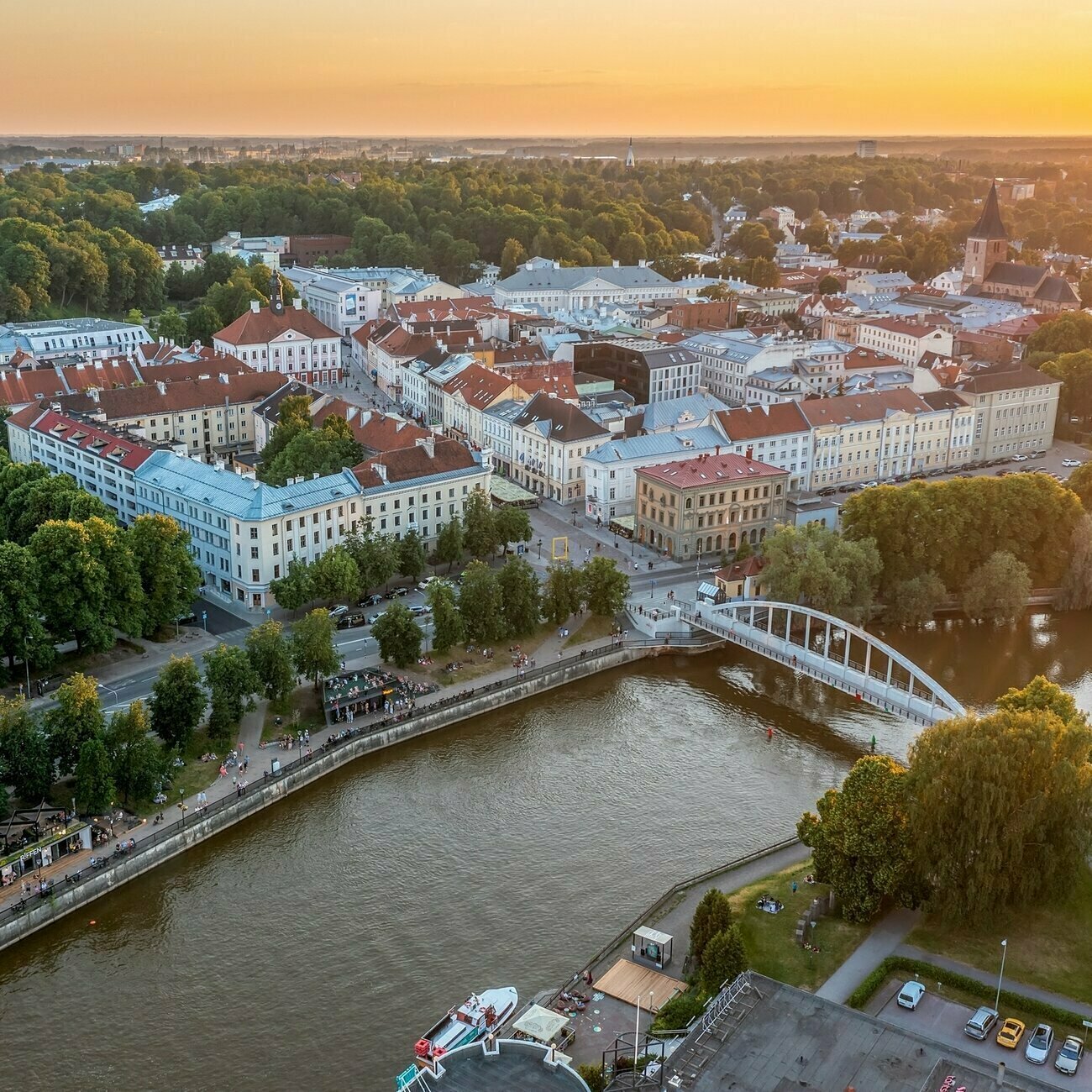Bioengineering
Master's
2 January
15 March
30 April
1 September
- The University of Tartu belongs to the top 350 universities in the world (see Rankings and Surveys).
- The programme combines different fields of applied biotechnology, synthetic biology, engineering and information technology.
- The Northern European region is one of the fastest-growing hubs in the world in industrial biotechnology.
- During your studies, you will gain practical experience in main industrial bioprocesses, fermentation, design of biological systems, industrial biotechnology and biomedical technologies.
- You can participate in internships at various biotechnology and biomedical technology companies.
- After graduation, you can work in industrial biotechnology worldwide.
Our Bioengineering master's programme at the University of Tartu offers an ideal platform for launching a research career in bioengineering and synthetic biology which are vital fields in the modern world for achieving global biosustainability. With a flexible study plan, practical training in well-equipped research laboratories, and an international environment, the programme provides students with the necessary knowledge, skills, and networking opportunities to make a significant impact in the field.


Bioengineering supports the fast-growing fields of industrial biotechnology and circular bioeconomy that are expected to become the key solutions for humanity's goal to achieve the biosustainability of our planet. There is also a growing need for specialists in bioengineering as industrial biotechnology and synthetic biology will be the basis of the industrial revolution of the 21st century. The master's programme in Bioengineering is an interdisciplinary curriculum that combines different fields of applied biotechnology, synthetic biology, engineering and information technology.
The main aim of the master's programme in Bioengineering is to educate specialists with skills and knowledge that will help them find jobs and contribute to the success of various companies working in industrial or medical biotechnology, circular bioeconomy, bioprocessing, etc. The graduates will understand and have practical experience covering the main industrial bioprocesses, fermentation, biological systems, industrial biotechnology, and biomedical technologies. The curriculum emphasises practical training and provides internships in various companies active in biotechnology and biomedical technology.
Having done my bachelor’s in Chemistry and Microbiology, I was eager to expand my understanding of the field. I found the diverse range of subjects, the programme content and the practical modules intriguing and exciting. The prestigious, historic but modernised character of the university, the fascinating new research, the reputable researchers affiliated with the university, the university’s environment, and the student life at Tartu were also influential in my decision to apply for my master’s in Tartu. The curriculum is very up-to-date and current, addressing a broad spectrum of theories and principles relevant to tackling current issues on the environmental, medical, technological, economic, and industrial fronts and more. In my opinion, the vast array of topics covered while also taking deep dives into more prevalent issues, such as cancer treatment, is truly exceptional and remarkable about this course. I strongly believe that the experience, knowledge, skill, and expertise I gain from this programme will help me achieve my ambition to become a fully equipped scientist and academic scholar.


Learning outcomes
After completion of the programme, you:
- have advanced knowledge in the fields of molecular biology, microbiology, and industrial biotechnology to continue the scientific career in the areas of biotechnology, biomedicine or in the sustainable bio-economy sector;
- know the main synthetic biology methods, and understand the core principles of the scientific method. You can apply interdisciplinary methodic approach to improve biotechnological processes;
- can apply a design-build-test-learn loop to optimise biological systems. You know how to use different engineering methods and utilities to solve bioindustry problems and how to collect and retrieve scientific information from different scientific sources and can critically evaluate it;
- can plan and fulfil work assignments using the most appropriate method and technology;
- can analyse and discuss both in oral and in written form the scientific literature;
- can evaluate the knowledge gained from the programme from scientific, social, and ethical points of view.
- have acquired the learning skills and desire to constantly evolve professionally throughout your career.
Extracurricular activities
The rhythm and environment of the university town are great for studying and living student life to the fullest. There is plenty of excitement – for example, the Science Theatre to find new acquaintances and discover and demonstrate fascinating phenomena of different fields of science. The student satellite ESTCube welcomes new members, and the Robotics Club offers a chance to improve and apply knowledge about robotics.
The city has beautiful parks, restaurants, youth clubs, recreational areas, and great sporting opportunities. The city's historical centre embodies a mixed spirit of a glorious academic past and an inspiring, brave future.
Programme highlights in media
- Watch here the programme director talk about the master's programme in Bioengineering during Virtual Open Day 2024.
- Watch here the programme director talk about the master's programme in Bioengineering and watch here the discussion round of master's students in natural sciences during the Online Open Doors Week 2022.
- Watch here Alumni Talks: Landing a career in biotechnology outside academia by Asfand Yar Saqib (MSc in Bioengineering)
Curriculum version:
More info: Study Information System
Institute of Bioengineering
The Institute of Bioengineering was established in 2023 and began operating on 1 January 2024. Currently, four research groups have joined the newly formed institute:
- Prof. Mart Loog’s Lab
- Prof. Andres Merits’ Lab
- Prof. Hannes Kollist Lab
- Assoc. Prof. Kaspar Valgepea Lab
You can get to know all the labs here.
Previously, the master's programme in Bioengineering was part of the Institute of Technology.

Visit us virtually
Explore Tartu, the Institute of Bioengineering, and the student dormitories through the university's virtual tour here.
Nooruse 1 study building tour (Institute of Technology and Institute of Bioengineering)
The master's degree in Bioengineering offers career opportunities in industrial biotechnology in the European Union and worldwide. The Nordic and Baltic regions are particularly attractive job markets where companies search for young talents with special skills in synthetic biology and industrial biotechnology. The Nordic region is one of the fastest-growing hubs in industrial biotechnology, expecting to hire thousands of newly trained specialists in the coming years.
Admission requirements for Bioengineering
- bachelor’s degree or equivalent qualification (must be obtained by the end of July) in the natural and exact sciences or in the field of medicine – please see our country-specific document requirements
- English language proficiency – please see our acceptable tests and exempt categories
NB! The restrictions for the citizens of the Russian Federation are specified here.
Applications are evaluated based on
- the average grade of the previous study level (yields 50% of the final score)
- the score of the motivation letter (yields 50% of the final score)
Please write a brief motivation letter (in English, maximum of 5000 characters with spaces) based on the following points:
- Describe briefly your previous studies and work experience and how it will help you succeed in this program. Explain how your educational and professional background relates to the programme you are applying to.
- Which elective courses corresponds the most to your study interests, so what electives would you like to take? (Elective courses need to be chosen from the list of courses of elective module of Bioengineering programme).
- How do you plan to implement the skills to be gained from the programme in your future career, in which role do you see yourself in your future job after completion of the programme Bioengineering?
In the evaluation of motivation letter, the following criteria will be considered:
- fit between the student’s goals and the programme (40%)
- analytical and argumentation skills (40%)
- fluency of written English (20%)
The maximum score for motivation letter is 100 points and the result is positive only if the applicant gains 51 points or more.
Only those applicants who score 66 points or higher (out of 100) as a combined score from both the motivation letter and average grade of the previous study level, will be considered for admission.
Further information on assessing candidates´ academic performance and calculating admissions´ score.
How to apply
The following information applies to international students and Estonian students who graduated abroad:
The application system opens on 2 January and closes on 15 March. The following documents must be submitted electronically via DreamApply by 15 March:
- online application
- motivation letter
- official certified copy of the bachelor's diploma or its equivalent and Diploma Supplement (transcript) in the original language (must include description of the grading scale).
NB! Applicants graduating in the upcoming spring/summer and having their diploma and final transcript issued later than the application deadline should electronically submit their most recent official transcript by the application deadline. The transcript should be supplemented by an official statement from the issuing institution indicating current enrollment and expected graduation date. Admitted candidates are required to post certified copies of their graduation documents as soon as these have been issued (must reach us no later than by the end of July). - official translation of the bachelor’s diploma and Diploma Supplement (transcript) into English, translation certified
- proof of English language proficiency
- copy of the passport page stating the applicant’s personal particulars
- confirmation/receipt of application fee payment (if applicable). All international applicants are required to pay the application fee EUR 100, unless they have completed the previous study level in Estonia. An application will only be processed after the fee has been received by the UT.
Submitted applications can not be edited. It is only possible to upload new documents (e.g. graduation certificates). Applicants will receive feedback and notifications through the DreamApply system to their e-mail. Incomplete applications or those submitted by e-mail will not be considered for admission.
Guide to submitting an electronic application on DreamApply.
NB: The University of Tartu has no official partnerships with agents or educational representatives. We strongly recommend applying directly to the university without the help of unauthorised third-party entities. Should you use such a service, please ensure that your application's contact information is your personal details (your e-mail, phone number, etc.).
The evaluation of applications will be made based on the electronic copies added to DreamApply. A general ranking list will be formed based on the electronically submitted applications and admission results (including offers) will be announced to all applicants personally via DreamApply by April 30 at the latest. Admitted candidates are expected to accept or decline the offer in DreamApply in 7 days. If the decision is not communicated to UT via DreamApply by the stipulated deadline, UT reserves the right to withdraw the admission offer.
NB! It is not possible to postpone the beginning of studies to the next academic year.
Terms and conditions of the admission offer
Admission offers are conditional. This means that there are conditions in the offer which the applicant needs to fulfil in order to be admitted (e.g. sending application documents by post; obtaining the required level of education). If the conditions are not met, UT has the right to withdraw the offer. Also, UT reserves the right to withdraw or amend any offer or revoke the matriculation of a student, if it becomes evident that the application contains fraudulent information, the qualification does not provide access to the chosen study programme or the student is found to have omitted key information from the application. Should such circumstances occur, UT will not be liable for any material or immaterial loss which the student may suffer as a result.
Once the admission results have been announced, all admitted students are required to send the application documents by post to: Student Admissions, University of Tartu, Ülikooli 18-133, Tartu 50090, ESTONIA.
The documents are expected to be mailed only by those receiving the admission offer (unless instructed otherwise by the admissions staff). The documents must reach the university within 3 weeks from the announcement of the offer. If the application documents do not reach us by the deadline, the university has the right to withdraw the admission offer. Applicants will be informed when their documents have arrived.
Requirements for educational documents
All copies of educational documents (diplomas and Diploma Supplements/transcripts) must be officially certified. By certified we mean that the copies should bear an original signature and seal of the authority certifying that these are true copies of the original document(s). The copies can be certified either 1) by an authorised official of the issuing institution, or 2) by a notary, or 3) with an Apostille attached. NB! Country-specific requirements may also specify the way documents from certain countries must be certified.
Please note that UT does not accept simple copies made on the basis of already certified copies (primary copies are needed).
All admitted students are required to present their original qualification certificates upon arrival (unless these were sent directly from the issuing institution).
Paying the tuition fee (applicable to those receiving a fee-based study place offer)
- EU/EEA/Swiss citizens are required to pay the fee for the first semester once they arrive in Tartu (by 20 September at the latest after signing the fee contract, please read more here).
- Admitted students from other countries are required to pre-pay half of the first semester's tuition fee. The invoice along with the pre-payment deadline and payment details will be sent to applicants via DreamApply after they have accepted the admissions offer and the University has received the hard copies of the application documents. Second part of the fee is due on 20 September. NB! The official admission letter (necessary for visa application) will only be issued once the University of Tartu has received the pre-payment.
- NB! Once you have been offered a fee-based study place, be aware that it will not be changed into a fee waiver study place. By transferring the pre-payment to the university, you confirm that you have informed yourself about the process of the visa and temporary residence permit application and you are able to arrive in Estonia by the start of the academic year. If you have any questions please contact studentvisasupport@ut.ee.
The official admission letter will be sent to admitted students electronically via DreamApply only after the admissions office has received and reviewed hard copies of the application documents, and received the tuition fee pre-payment (if a pre-payment was required, please see step 3 for more details).
NB! The electronic admission letter is also sufficient for non-EU students for applying for visa/residence permit at an Estonian embassy.
Once the admission letter is issued, accepted students may proceed further with arranging their arrival. All non-EU students should first consult information on the process of visa and temporary residence permit application to be sure, as where and when the relevant documents need to be applied. Note that housing at the UT dormitories can be applied during a limited period of time, unless specified otherwise on the website.
NB! Admitted students who are not citizens of an EU or EEA country or Switzerland need to make sure they obtain the Estonian long-term visa on time in order to be able to participate in the orientation programme for international students held in the last week of August. They are also required to visit the Admissions Office in person to complete their arrival registration by September 1, 2025, at the latest. Failure to do so will result in the revocation of their admission decision and visa.
For housing alternatives please find further information on Tartu Welcome Centre website. Travel information can be found here. Based upon common queries, the most important information has been summarised into a pre-arrival information website UT Getting Started.
Estonian applicants should apply via National Admission Information Systems (SAIS). Further information in Estonian.
Contacts
Ask about the admission requirements and application process
Find out what awaits you at UniTartu

Join info events
Learn more about the university and its study programmes by attending our info events for future students. Our staff also attends international fairs and info sessions.

Spend a day as a student
During the academic year, you can spend a day with a current student in your field of interest, giving you a firsthand look at student life and the University of Tartu.

Listen to the podcast
The "Tiksu to UniTartu - Podcast for International Students" covers topics such as housing, student organisations, healthcare, etc.

Visit the campus
Visiting the campus gives you a great understanding of what it would be like to study here. You can visit us throughout the year.






